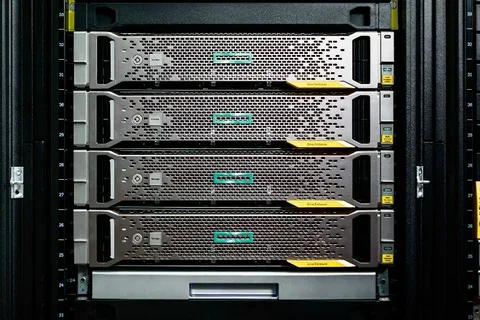The Importance of Redundant Power Supplies in Server Infrastructure

In today’s digital landscape, where businesses rely heavily on technology to operate efficiently, the importance of a stable and reliable Best server infrastructure cannot be overstated. One critical component of this infrastructure is the power supply system. Redundant power supplies play a vital role in ensuring the continuous operation of servers and other critical equipment. This article delves into the significance of redundant power supplies and how they contribute to maintaining system reliability, preventing downtime, and ensuring business continuity.
Understanding Redundant Power Supplies
Redundant power supplies refer to a setup where multiple power supplies are used to serve the same equipment. In the event that one power supply fails, the other(s) can take over, ensuring that the system remains operational. This redundancy is crucial for servers, which require a constant and reliable power source to function correctly. Redundant power supplies are often implemented in data centers, where uptime is critical for maintaining service delivery and meeting customer expectations.
Enhancing Reliability and Uptime
One of the primary benefits of redundant power supplies is their ability to enhance system reliability. Servers are the backbone of most organizations, hosting applications and services that employees and customers rely on daily. A single point of failure in the power supply can lead to unexpected outages, causing significant disruptions in service. By incorporating redundant power supplies, organizations can minimize the risk of downtime. If one power supply fails, the backup kicks in immediately, allowing operations to continue seamlessly.
Protecting Against Power Outages
Power outages can occur due to various reasons, including utility failures, severe weather, or equipment malfunctions. Such interruptions can have devastating effects on businesses, resulting in data loss, decreased productivity, and financial implications. Redundant power supplies are designed to mitigate the impact of these outages. With backup power sources in place, servers system can maintain functionality even during unexpected power disruptions. This resilience is essential for organizations that need to ensure continuous service availability and protect their operations from external factors.
Supporting Maintenance and Upgrades
Redundant power supplies also facilitate easier maintenance and upgrades of server infrastructure. In a traditional setup, performing maintenance on a single power supply can lead to downtime. However, with redundant power supplies, IT teams can conduct maintenance on one power supply while the other continues to provide power to the servers. This capability is particularly valuable during upgrades or repairs, as it ensures that systems remain operational and that there is no disruption to services.
Ensuring Data Integrity and Protection
Data integrity is a critical concern for organizations, especially those that handle sensitive information or operate in regulated industries. Unexpected power loss can lead to data corruption, loss of unsaved work, and other data integrity issues. By implementing redundant power supplies, organizations can reduce the risk of data loss associated with power failures. The continuous power supply allows for proper shutdown procedures and data backups, further protecting critical information and maintaining compliance with data protection regulations.
Improving Overall System Performance
Redundant power supplies can contribute to improved overall system performance. With a stable power source, servers can operate at optimal levels without the risk of interruptions or fluctuations in power quality. This stability ensures that servers function efficiently, minimizing the risk of performance bottlenecks. Furthermore, organizations can better allocate resources and plan for growth, knowing that their infrastructure is equipped to handle increased demands without compromising performance.
Cost-Effectiveness of Redundant Power Supplies
While some organizations may view the implementation of redundant power supplies as an additional cost, the long-term benefits far outweigh the initial investment. The financial implications of downtime, including lost revenue, decreased productivity, and potential damage to reputation, can be substantial. By ensuring that servers remain operational and minimizing the risk of power-related disruptions, redundant power supplies can lead to significant cost savings over time. Organizations can allocate their resources more effectively, focusing on growth and innovation rather than dealing with the fallout of outages.
Future-Proofing Server Infrastructure
As technology continues to evolve, organizations must prepare their server infrastructure to accommodate future demands. Redundant power supplies not only support current operations but also position organizations for future scalability. As businesses expand and their power requirements grow, having a robust power supply system in place allows for seamless integration of new equipment and services. This future-proofing aspect ensures that organizations remain competitive in an ever-changing landscape.
Conclusion
In an era where uptime is critical to business success, the importance of redundant power supplies in Top server infrastructure cannot be overlooked. By enhancing reliability, protecting against power outages, supporting maintenance, ensuring data integrity, and improving overall performance, redundant power supplies play a vital role in maintaining continuous operations. Organizations that invest in redundant power supplies are not only safeguarding their systems against disruptions but also positioning themselves for future growth. As technology advances and demands increase, ensuring a stable power supply will be essential for maintaining a competitive edge in the digital marketplace.

